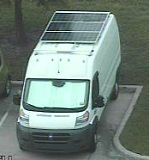I do prefer reading physical books, but I almost exclusively read on my ereader because of easy availability of whatever I want, and it doesn’t take up tons of space like books do.
Yeah pretty much my thinking as well. Almost all my physical books are in a box in a wardrobe cause I have nowhere else to put them. It’s a sad state to end in for a piece of literature, isn’t it?
Give them away! I have a bunch of books on my shelf, my friend asked me, “how many of those have you even read?” And I said, probably around half of them. He scoffed. As if I were just buying books…for the look? I dunno. But all of my previously read books get “loaned out” and never return. Which is fine! Plenty of people have lent me books that I never returned. It’s the circle of life.
My whole family has tried getting me on e-readers because I’ve always been the reader of the family, but…I read a few books on it and then never used it again. It was fine, but I love my physical books. When I was traveling overseas for a few years, I had like six books in my bag. Which, yeah, maybe an e-reader would’ve been smarter at that point, but every single book I was reading I gave to someone to enjoy when I finished. And people gave me books when I finished mine! It’s such a great system. I also love shopping for used books…that part may be a bit of an addiction lol
Actually, it’s a great suggestion. However that small box I’m left with is that post-donation elite group, the ones that have sentimental value. I haven’t bought physical books in years, I borrow at the library. I don’t read fiction nearly as much as I used to, sadly… Teenage me, who read anywhere from 1-3 novels a week, would be ashamed.
Edit: Now that I think of it, I do have some books that are loaners and others I’ve loaned and never saw again. My copy of The Hobbit was my godfather’s when he was in university.
Compared to my kindle, I hate real books. No worries about lighting. Page always flat. Lighter. Never lose what page you’re on. Less space and hundreds of books can be kept right there. Still looks like real paper. Font and size to your own preference.
There’s really no downside at all for me. I never cared how a book “smelled”. That’s for sure.
If you have an ereader with an eink screen… it’s a no-brainer. Digital books are soooo good.
- virtually no weight
- virtually no space
- waaaaay cheaper
- your local library has probably a way bigger and more accessible catalogue of ebooks than physical ones
- tap and hold a word and get an automatic definition/translation
- adjust text size or font
- dark mode, if you into that (in some models)
- Text-to-speech (in some models)
- highlight text and write notes without f-ing up pages
- literally translate entire phrases or look particular information from Wikipedia or similar with a simple gesture.
- backup all of those and do crazy stuff like an automatic daily email to yourself with cool notes you took months/years ago.
Physical books nowadays are like vynil music… it’s for the artwork and having a physical “certificate” of something you love. Like… if I discover a book I really enjoy, I’ll probably buy a physical version so I can, you know, have it there on the shelf, like you have family pics or something.
Just got a kobo libra 2 a couple of weeks ago and I’m loving it. You forgot to mention the dictionary native to most e-readers too!
I’ve been eying up this one. Have you used other ereaders before? Have you got anything to compare it to?
I hear that having a screen that isn’t flush with the touch surface really improves the word clarity. I’m not really enjoying my paperwhite 5 because it’s has a weird blurred effect on the screen because it’s flush
This was my first e-reader, but I played around with my mom’s Paperwhite 5 for a bit before deciding against it. The UI on the paperwhite is better but you don’t really interact with it much for it to be a big problem. I also patched mine using calibre to add some features that aren’t present on the stock UI. I’m not sure about the particulars with the display but text and images are fairly crisp. All in all, I’m pretty happy with it
Being able to carry my entire collection with me is incredible. Before I’d have to select a few to bring on vacation or when visiting relatives.
I dunno about the vinyl parallel. I’m a physical book reader myself—I’ve tried an ebook, I read a few books on there. But it didn’t hold me the way books know how to. Just right.
Not to mention, I’m trying everything I can to realistically separate myself from the “internet of things.” I use the internet, but I try to achieve as private of an experience as I can manage. I’m wary of cameras these days. I never used social media. I cover any camera pointed at me that I can…my point is, a book doesn’t know I’m reading it or how long I’ve read it. Buying used books, no one knows who I am, how long I’ve spent reading, WHAT I’m reading, etc.
I can’t say the same about these e-readers. I don’t need ANOTHER device I’m constantly worried is stealing every single metric it can possibly gather about me.
Depends. Digital is usually best for me since I can read on my phone pretty much anytime anywhere.
That said, some books feel like they work best in your hand, like The Book of Disquiet, which has so many notes at the end and I haven’t found a comfortable enough way to skip back on forth without having to scroll through a lot to get to where I was, or House of Leaves, which is more like a fun hands-on puzzle to play with.
House of Leaves is a wild experience in the new(ish) full-color print.
I never did finish it because it’s such an endeavor. You really have to commit to it.
I think e-ink readers are incredible. My eyes feel like they’re reading a normal book, but it’s got a backlight, doesn’t take up a bunch of physical space I don’t have, and it’s a lot easier to read using only one hand at a time (even turning pages).
- The <1% of books I love: physical
- The >99% of everything else: digital
I think I overall prefer digital, but on e-ink devices mostly.
I like that they don’t take up space, I can download them quickly and not have to go to the bookstore or order it online and wait for it to be delivered. Also I can sync it on multiple devices and read on my kindle when I really want to have a good reading experience but if I forget it or am waiting for the bus or something, just pull up the kindle app on my phone and everything is synced.
On the other hand, growing up with a lot of books I kinda miss the feel and smell of physical books. Also I feel like they are a bit more… “permanent”.
I used to prefer physical, because I read on my phone and never really paid attention. Used my phone to read for a year and read a ton of books but don’t remember any of them. Couple years ago I bought a kindle and ever since I haven’t bought a single physical book, opting to buy them instead through amazon.
Don’t think I’ll ever go back to physical, honestly, it’s just too convenient. Digital is less bulky, not just in storage but in my hands, pages don’t wear down from turning, and I can fit my kindle in my front pockets and read anywhere, any time.
I dislike having to give money to amazon though.
Kobo! Kobo is owned by Rakuten and they integrate with public libraries too.
2nd for Kobo! It’s a good device, supports more standards, and doesn’t fund any of the Too Big Tech Giants
Ooo, these look cool. Won’t be able to access those libraries, but this seems like a good option, thanks!
Just in case you didn’t know, you don’t have to buy books through Amazon (actually that’s the worst option). You can buy the books in epub format from the publishers website or other stores usually (and if all else fails, pirate it in epub format). Epub is DRM free, which means you actually own the book, and, although I wouldn’t have recommended buying an Amazon Kindle, now you have it, according to another commenter, you can email the epub to yourself and read it on the kindle.
Oh yeah, I’ve pirated stuff before. WotC stuff though, no way I’m giving them money for handbooks.
I prefer physical. But my shelves were full and the wood groaning. I use a kindle these days.
Digital. I love physical books, but I never read them. Digital is so much easier for me to actually sit down and read, and I love building up my library.
This is the same for me. I love the tactile feeling of books, I love the smell, the weight, the aesthetic and the idea.
They take up so much space though and that can make them a hassle to access. I also like to read in bed which means I need something that can make it’s own light, and I like the versatility digital books have in font size and in the case. Especially as a comic reader where you have weekly and monthly issues or chunky volumes it adds up quickly.
Absolutely! The bed point is a big kicker, I don’t want to wake my partner up with a light, or with page turns, or sit in an awkward position. Digital is just easier.
I reluctantly started reading ebooks years ago for a very practical reason: owning some few thousand physical books, I pretty much ran out of room in the shelves in my small apartment. So nowadays I only buy physical art books and the like. Having said this, I actually easily grew to like ebooks, for their ubiquitous availability and, of course, not taking up precious shelf space.
Have to read them in an ereader for a proper experience, though. Tablet/smartphone displays tire my eyes a lot if I read for any meaningful period of time.
I’ve heard from an optometrist that Amazon paperlites solve the eye strain issue. Specfically asking “Why do you hate your eyes?” when I told him I read via a tablet.
The only downside is giving Amazon money…
Kobo ereaders work just as well and you can bring your own books.
I have a Kobo, and it’s fucking sweet. You don’t even need EPUB format; Kobos read plain fucking text.
you can get ebooks for free without a library
Do you prefer digital or physical books?
Digital. I live in 76ft2 and can no longer store thousands of physical books like I did in a “sticks and bricks” house. But there are ~13,000 easily stored between the e-ink kindle and waiting in the wings in calibre.
Reading is a big part of my retirement plan.
Oh my god I love this. How did you manage to get down to 76 square feet?
I live in a 250 sf apartment and it’s one of the best decisions I’ve made.
Digital, no contest.
I’m an old guy and I’ve been buying and reading books for most of my life. I own thousands of them, filling up shelves and stacked on tables and cluttering everything, and that’s even with the bulk of them in boxes in my garage. I love them and I love being surrounded by them, but they’re a chore and a burden.
And I have a collection of almost as many ebooks, all in a few GB on a tablet.
So ebooks win on space and convenience.
As far as the actual process of reading goes, they’re pretty close to the same, but ebooks have a bit of an edge. I have no issues with a screen, so words on a screen or words on paper are pretty much the same. Physical pages though are bound along one edge and flexible and generally at least subtly curved, while a screen is perfectly flat and evenly lit. Also, on a physical page, I’m stuck with whatever typeface is there, while with an ebook, I can scale it to whatever I want or even change the font or colors or whatever. so ebooks win there too.
And while I’m reading an ebook, I can search the text for any term or character name or phrase, so I can refresh myself on things or find a particular passage or whatever without laboriously thumbing through the pages, and I can switch over to a browser anytime to get background for anything or just look up a word.
And when I finish or drop an ebook, I can just tap the back arrow to go to my shelf, or switch over to an app or browser and go online, and find another one.
So… yeah. I really don’t think there’s one single thing that physical books do better than ebooks, other than serving as decoration - filling space on shelves.
Both. I prefer digital generally because I’m a digital hoarder and I love seeing my Calibre library get bigger and carrying my Kobo around, but there’s something satisfying about seeing my bookmark make steady progress through a physical book (slowly; I’m a slow reader).










